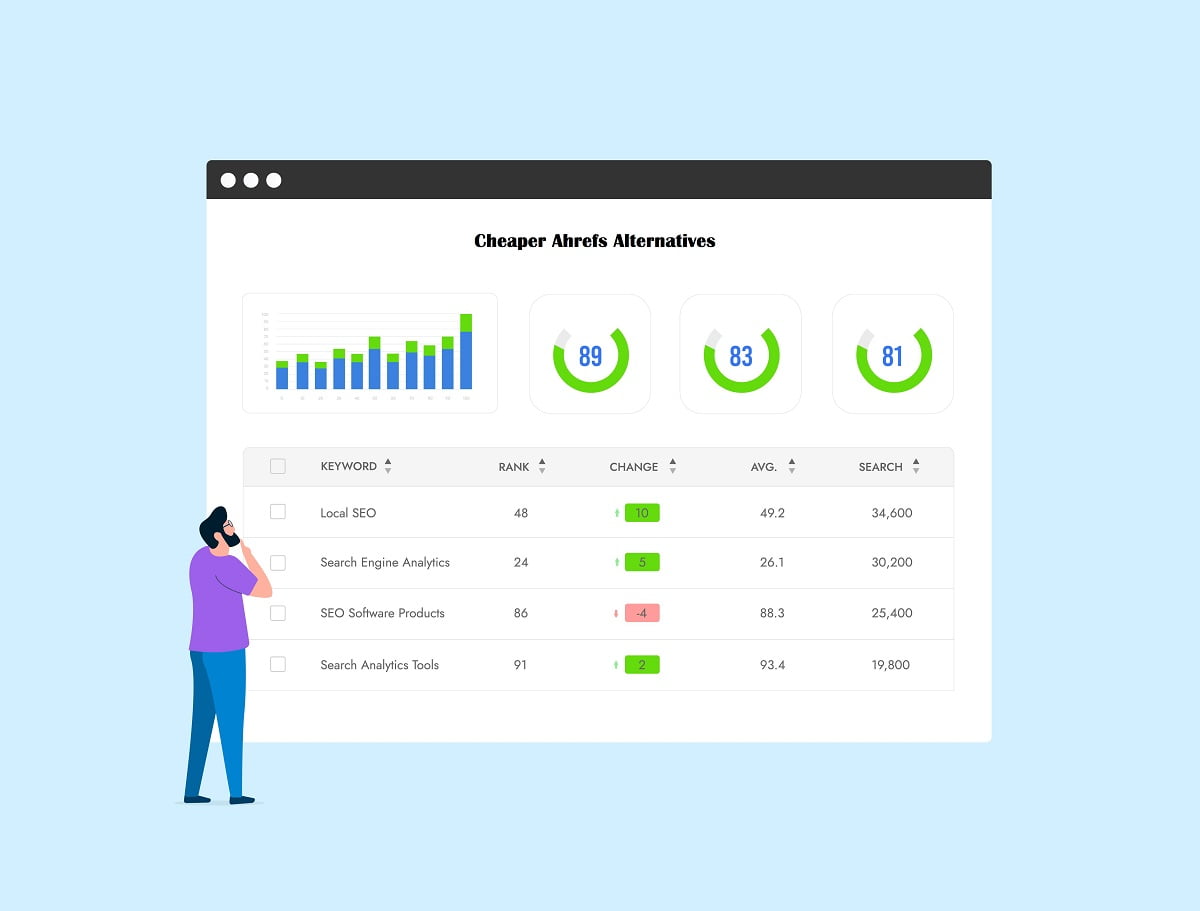Mastering Search Engine Optimization Techniques

If you want to boost your website’s visibility and drive organic traffic, mastering the techniques of search engine optimization (SEO) is essential. SEO involves optimizing your website to improve its rankings on search engine results pages (SERPs) and attract more targeted visitors. This article will provide you with a comprehensive guide to mastering the techniques of SEO, covering everything from keyword research to on-page optimization and link building strategies. By implementing these proven techniques, you can increase your website’s visibility, improve its organic rankings, and ultimately drive more valuable traffic to your site.
Basics of Search Engine Optimization
Search Engine Optimization (SEO) is the practice of optimizing a website to improve its visibility and rankings on search engine results pages (SERPs). It involves various techniques and strategies that help search engines understand the content of a website and determine its relevance to specific search queries.
There are several fundamental aspects of SEO that every website owner should understand:
1. Keywords
Keywords are the words or phrases that users enter into search engines to find relevant information. Incorporating relevant keywords into your website’s content, meta tags, and headings is crucial for SEO. However, it’s important to use keywords naturally and avoid keyword stuffing, as search engines prioritize user experience and quality content.
2. On-Page Optimization
On-page optimization refers to optimizing individual web pages to improve their visibility on search engines. This includes optimizing meta tags (such as meta title and description), using descriptive URLs, organizing content with proper headings (h1, h2, h3, etc.), and ensuring the website has a clear and logical structure.
3. Off-Page Optimization
Off-page optimization involves activities performed outside of your website to improve its search engine rankings. This primarily includes building high-quality backlinks from reputable websites, as search engines consider backlinks as a vote of confidence for your website’s credibility and relevance.
4. Mobile-Friendliness
In today’s mobile-dominated world, having a mobile-friendly website is essential for SEO. Search engines prioritize mobile-responsive websites and penalize those that provide a poor mobile experience. Ensuring your website is optimized for mobile devices, with responsive design and fast loading times, can significantly improve your search engine rankings.
5. User Experience
Search engines aim to provide the best possible results for users’ search queries. Therefore, user experience plays a crucial role in SEO. Factors like website speed, intuitive navigation, engaging content, and easy-to-use interfaces are all important for improving user experience and ultimately boosting your website’s search engine rankings.
By understanding and implementing these basic SEO principles, you can lay a strong foundation for your website’s optimization efforts. However, SEO is an ongoing process, and staying updated with the latest trends and best practices is necessary to maintain and improve your website’s rankings in the long run.
On-Page Optimization Strategies
On-page optimization refers to the techniques and strategies used to optimize individual web pages in order to improve their search engine rankings and drive organic traffic. Here are some key on-page optimization strategies:
Title Tag Optimization
The title tag is one of the most important on-page SEO elements. It should accurately describe the content of the page and include relevant keywords. A well-optimized title tag can significantly improve the visibility of a web page in search engine results.
Meta Description Optimization
The meta description is a brief summary of the content found on a web page. It appears below the title tag in search engine results and plays a crucial role in attracting visitors to click on the link. Optimizing the meta description by including relevant keywords and compelling copy can increase click-through rates.
Heading Tags Optimization
Using heading tags (h1, h2, h3, etc.) properly helps search engines understand the structure and hierarchy of the content on a page. The main heading (h1) should convey the primary topic of the page, while subheadings (h2, h3, etc.) can be used to break down the content into logical sections. Including relevant keywords in heading tags can also improve SEO.
Keyword Optimization
Keyword optimization involves strategically incorporating relevant keywords throughout the content of a web page. This helps search engines understand the topic and relevance of the page to specific search queries. However, it’s important to use keywords naturally and avoid keyword stuffing, as search engines may penalize websites for excessive keyword usage.
URL Structure Optimization
An optimized URL structure is clean, concise, and includes relevant keywords. A well-structured URL not only helps search engines understand the content of a page but also improves user experience and makes it easier to share and link to the page.
Image Optimization
Optimizing images involves reducing their file size without compromising quality, adding descriptive alt tags, and using relevant filenames. This helps search engines understand the content of the images and improves the overall SEO of the page. Additionally, properly optimized images can enhance the user experience by loading faster and providing visual appeal.
Implementing these on-page optimization strategies can greatly improve the visibility and rankings of web pages in search engine results. However, it’s important to remember that on-page optimization is just one aspect of a comprehensive SEO strategy. Off-page factors, such as backlinks and social signals, also play a significant role in determining search engine rankings.
3. Off-Page Optimization Techniques
Off-page optimization techniques refer to activities that are performed outside of your website to improve its search engine rankings. These techniques focus on building a strong online presence and increasing the credibility and authority of your website.
Social Media Engagement
Social media platforms play a crucial role in off-page optimization. Engaging with your audience on platforms like Facebook, Twitter, Instagram, and LinkedIn can help you build brand awareness, increase website traffic, and improve search engine rankings. Regularly sharing relevant and engaging content, interacting with followers, and participating in discussions can boost your online presence.
Link Building
Link building is an essential off-page optimization technique. It involves acquiring backlinks from other reputable websites to your own. Backlinks act as a vote of confidence for search engines, indicating that your website is trustworthy and valuable. Conducting outreach to relevant websites, guest blogging, and creating high-quality content that naturally attracts backlinks are some effective strategies for link building.
Online Reputation Management
Your online reputation plays a significant role in search engine optimization. Monitoring and managing online reviews, ratings, and mentions of your brand is crucial for building trust and credibility with both search engines and users. Encourage satisfied customers to leave positive reviews, promptly address any negative feedback, and actively engage with your audience to maintain a positive online reputation.
Social Bookmarking
Social bookmarking involves submitting and sharing your website’s content on various social bookmarking platforms like Reddit, StumbleUpon, and Digg. This helps in increasing the visibility of your website and driving traffic. However, it is essential to choose relevant categories and tags while submitting to ensure that your content reaches the right audience.
Content Marketing
Content marketing is a powerful off-page optimization technique that involves creating and distributing valuable, informative, and engaging content to attract and retain a targeted audience. By publishing high-quality articles, blog posts, infographics, videos, and other forms of content, you can establish your website as a reliable source of information, increase brand awareness, and attract natural backlinks.
Implementing these off-page optimization techniques in conjunction with on-page optimization strategies can significantly improve your website’s search engine rankings and visibility. Remember to consistently monitor and adapt your off-page optimization efforts to stay ahead of the competition and maintain a strong online presence.

4. Technical SEO Best Practices
Technical SEO refers to the optimization of the technical aspects of a website to improve its search engine rankings. It involves various practices that ensure search engines can crawl, index, and understand the content on your website effectively. Here are some important technical SEO best practices:
Ensure Fast Loading Speed
A fast loading speed is crucial for both user experience and SEO. To optimize your website’s loading speed, you can compress images, minify CSS and JavaScript files, enable browser caching, and utilize a content delivery network (CDN).
Optimize for Mobile Devices
In today’s mobile-dominated world, mobile optimization is a must. Make sure your website is mobile-friendly and responsive. Use responsive design techniques, test your website on various mobile devices, and prioritize mobile user experience.
Implement Structured Data Markup
Structured data markup helps search engines understand the content on your website better. By implementing schema markup, you can provide additional information about your web pages, products, reviews, events, and more. This can enhance your website’s visibility in search results and enable rich snippets.
Create an XML Sitemap
An XML sitemap is a file that lists all the pages on your website, helping search engines discover and index your content. Ensure your XML sitemap is up-to-date, error-free, and easily accessible to search engine bots.
Optimize URL Structure
A clean and logical URL structure makes it easier for search engines and users to understand the hierarchy and relevance of your web pages. Use descriptive keywords in your URLs, separate words with hyphens, and avoid using excessive parameters or unnecessary subfolders.
Improve Website Security
Website security is not only important for protecting user data but also for SEO. Implement HTTPS (SSL) encryption, regularly update your website’s software and plugins, and use strong passwords to safeguard your website from security vulnerabilities.
By implementing these technical SEO best practices, you can enhance your website’s visibility, improve user experience, and increase your chances of ranking higher in search engine results.
5. SEO Tools and Resources
When it comes to optimizing your website for search engines, having the right tools and resources can make all the difference. In this section, we will explore some essential SEO tools and resources that can help you improve your website’s visibility and drive more organic traffic.
Keyword Research Tools
Keyword research is a critical aspect of any successful SEO strategy. It involves identifying the keywords and phrases that your target audience is using to search for products or services similar to yours. With the help of keyword research tools, you can uncover valuable insights into search volume, competition, and related keywords.
On-Page Optimization Tools
To ensure your web pages are optimized for search engines, you need on-page optimization tools. These tools analyze various on-page elements such as meta tags, headings, content, and internal linking to help you identify areas for improvement and make necessary adjustments to boost your rankings.
Backlink Analysis Tools
Backlinks are an essential factor in determining your website’s authority and credibility in the eyes of search engines. Backlink analysis tools can help you identify the websites linking to your site, evaluate their quality, and discover opportunities to acquire new backlinks. By monitoring and improving your backlink profile, you can enhance your website’s search engine visibility.
SEO Reporting and Analytics Tools
Measuring the effectiveness of your SEO efforts is crucial to understanding what works and what doesn’t. SEO reporting and analytics tools provide valuable data and insights into your website’s performance, including organic traffic, keyword rankings, click-through rates, and more. By tracking and analyzing this data, you can make informed decisions to optimize your SEO strategy.
SEO Communities and Forums
Engaging with SEO communities and forums can be immensely beneficial for staying updated with the latest trends and best practices. These online communities allow you to connect with industry experts, share knowledge, ask questions, and seek advice. By actively participating in these communities, you can expand your SEO knowledge and stay ahead in the ever-evolving world of search engine optimization.
By leveraging the power of SEO tools and resources, you can enhance your website’s visibility, attract more organic traffic, and ultimately achieve your online goals. Remember to choose tools that align with your specific needs and regularly stay updated with the latest developments in the field of SEO.
Conclusion
Search Engine Optimization (SEO) plays a crucial role in improving a website’s visibility and driving organic traffic. This article has provided a comprehensive overview of the key techniques involved in mastering SEO. By understanding the importance of keywords, optimizing on-page elements, creating high-quality content, and building authoritative backlinks, website owners and digital marketers can greatly enhance their online presence. Implementing these strategies diligently and staying updated with the ever-evolving SEO landscape will ultimately lead to higher search engine rankings, increased website traffic, and improved user engagement. By continuously honing their skills and staying ahead of the curve, individuals can become true masters of search engine optimization.





